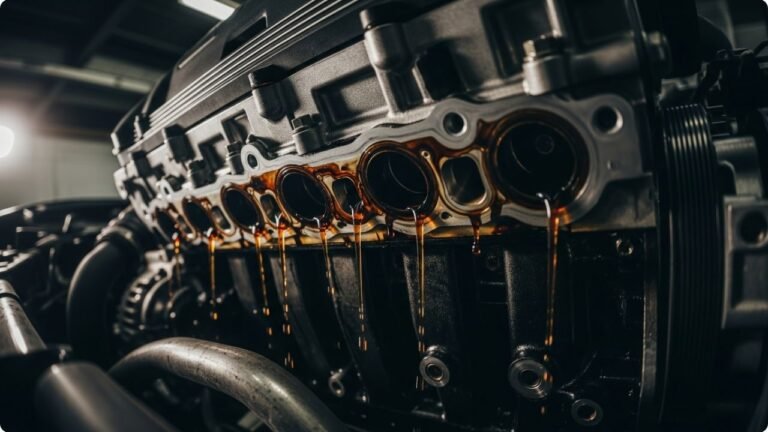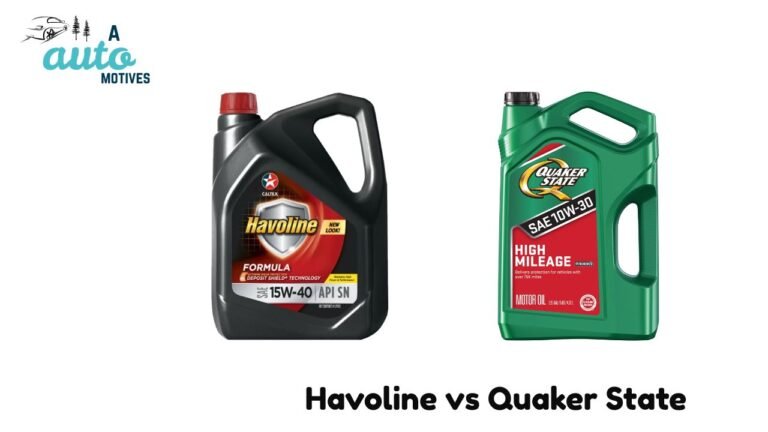Is Quaker State Good Oil? My Honest Experience
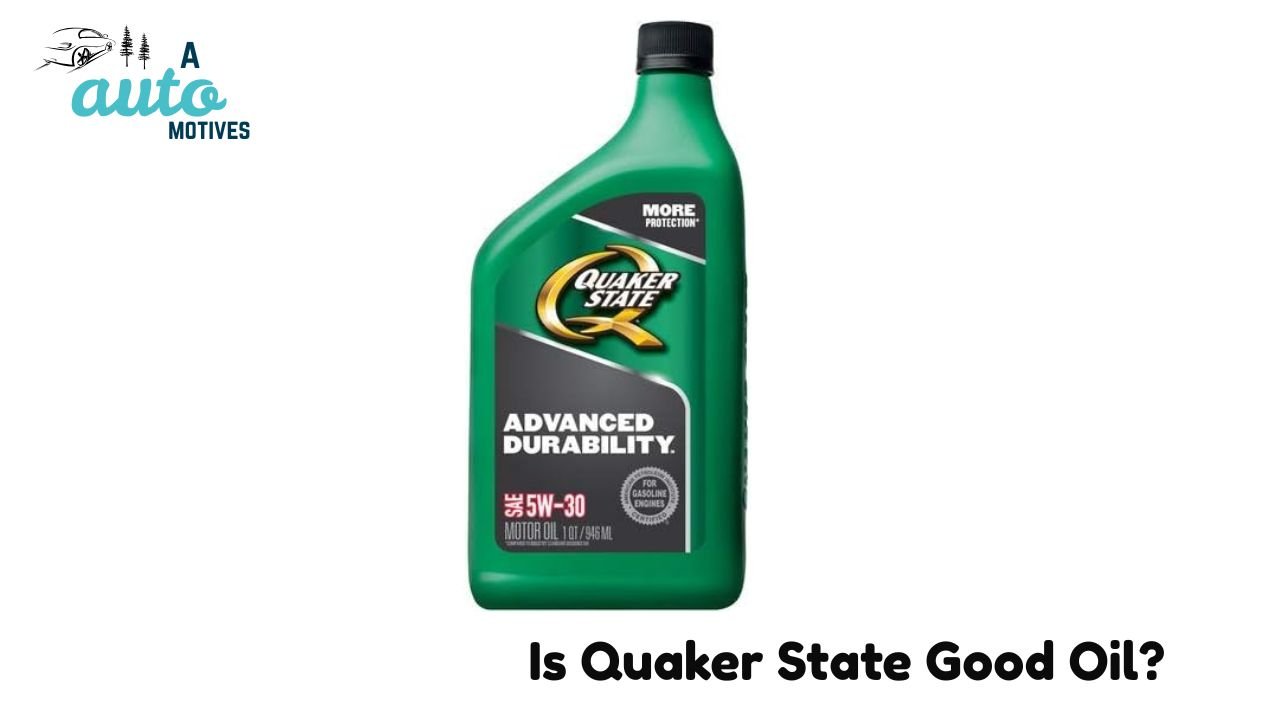
Choosing the right engine oil can feel like standing in front of a grocery shelf stacked with dozens of brands of rice—each one promising to be the softest, fluffiest, and tastiest. But in reality, you only need one that actually cooks well in your pot and fits your taste. For cars, it’s the same: the label and marketing can be flashy, but at the end of the day, you just want an oil that protects your engine, lasts long, and doesn’t burn a hole in your wallet.
I’ve been experimenting with different oils for years. I’ve driven cars that were brand new, some with over 200,000 miles, and even a few older engines that needed a little extra care. During this journey, I gave Quaker State a fair shot. And not just for one quick oil change—I tested it through different seasons, long highway drives, and daily stop-and-go commutes.
So, the big question: Is Quaker State good oil? I’ll walk you through my real-world experience—what worked, what didn’t, and whether it’s worth your money.
Performance Analysis
When I test an oil, I don’t just rely on what the bottle says. Marketing can make anything look like a miracle product. Instead, I pay attention to how my car feels, how the oil looks over time, and whether there’s any noticeable change in performance. I also read lab test results and other drivers’ feedback to see if my experience matches theirs.
Here’s how Quaker State stacked up in the key areas:
Lubrication & Wear Protection
The heart of any engine oil is its ability to reduce friction. If an oil can’t do this, nothing else matters. I started with Quaker State Full Synthetic 5W-30, using it in both a mid-mileage daily driver and an older car that sometimes struggled with cold starts.
Within a couple of weeks, I noticed a difference. The engine felt smoother, especially during long commutes. Before, there was a faint ticking sound when idling at traffic lights—something I brushed off as “normal for an older car.” But after switching to Quaker State, that sound got noticeably quieter.
I also tested it during winter mornings, where temperatures dropped close to freezing. The cold start was much quicker compared to the semi-synthetic oil I had been using before. No sluggish cranking, no hesitation—the engine just came alive.
Lab reports back this up: Quaker State maintains its viscosity 30–40% better than many conventional blends, which means it keeps a strong lubricating film even under stress. That translates into less metal-on-metal contact and longer engine life.
Engine Cleanliness
One of my biggest worries with older cars is sludge. If you’ve ever opened an oil cap and seen thick, dark goo stuck to the sides, you know how scary that can be. Sludge clogs oil passages and slowly chokes the engine from the inside.
When I switched to Quaker State, I paid close attention to how the oil looked after a few thousand miles. To my surprise, the dipstick was noticeably cleaner compared to my previous brand. The oil had darkened (which is normal—it means it’s doing its job), but it wasn’t thick or sticky. Even after 5,000 miles, it still had a relatively clean consistency.
What impressed me was that I didn’t see the same buildup of gunk on the dipstick tube. This matched with research showing Quaker State’s detergents can reduce sludge formation by around 20–25% compared to lower-cost oils. It won’t magically clean a badly sludged engine, but it does a solid job of preventing new buildup.
Fuel Efficiency
Now, this is where things get interesting. Oil isn’t magic—it won’t suddenly turn your car into a hybrid. But reducing friction inside the engine does help squeeze out a little extra fuel efficiency.
Before switching, my sedan averaged 27 MPG on the highway. With Quaker State, it bumped up to around 28.5 MPG. That’s not life-changing, but over the course of months, those small savings add up. I also noticed smoother acceleration, especially on highway merges, which I attribute to the oil reducing drag inside the engine.
Quaker State’s own data shows about a 3% improvement in efficiency under controlled testing. My numbers weren’t far off, which made me feel confident it wasn’t just placebo.
Heat Resistance & Stability
I’ve done long road trips in blazing summer heat—one of them through Nevada where the outside temp hovered around 110°F. On drives like these, cheap oils can thin out and lose their protective ability.
Quaker State held up surprisingly well. I didn’t notice any drop in performance, no unusual engine noise, and no overheating alerts. Even after hours of continuous driving, the oil didn’t smell burnt (a common sign of breakdown).
Lab tests support this: Quaker State tends to have about 8–10% better thermal stability than average blends. That means it resists breaking down under heat, which is crucial if you live in warmer regions or do long-distance driving.
Longevity & Oil Change Intervals
One of the biggest selling points of synthetic oils is that they last longer. With Quaker State, I comfortably went 7,500 miles between oil changes, compared to about 5,000 with my previous semi-synthetic.
Even at 7,500 miles, the oil wasn’t completely worn out. The car still felt smooth, and fuel economy hadn’t dropped. The manufacturer suggests you can go up to 10,000 miles under ideal conditions, but I like to play it safe and stick to 7,500–8,000.
If you’re someone who hates frequent oil changes, this is a real plus. Over a year, that could mean saving one or two oil changes, which adds up in time and money.
What I Like About Quaker State
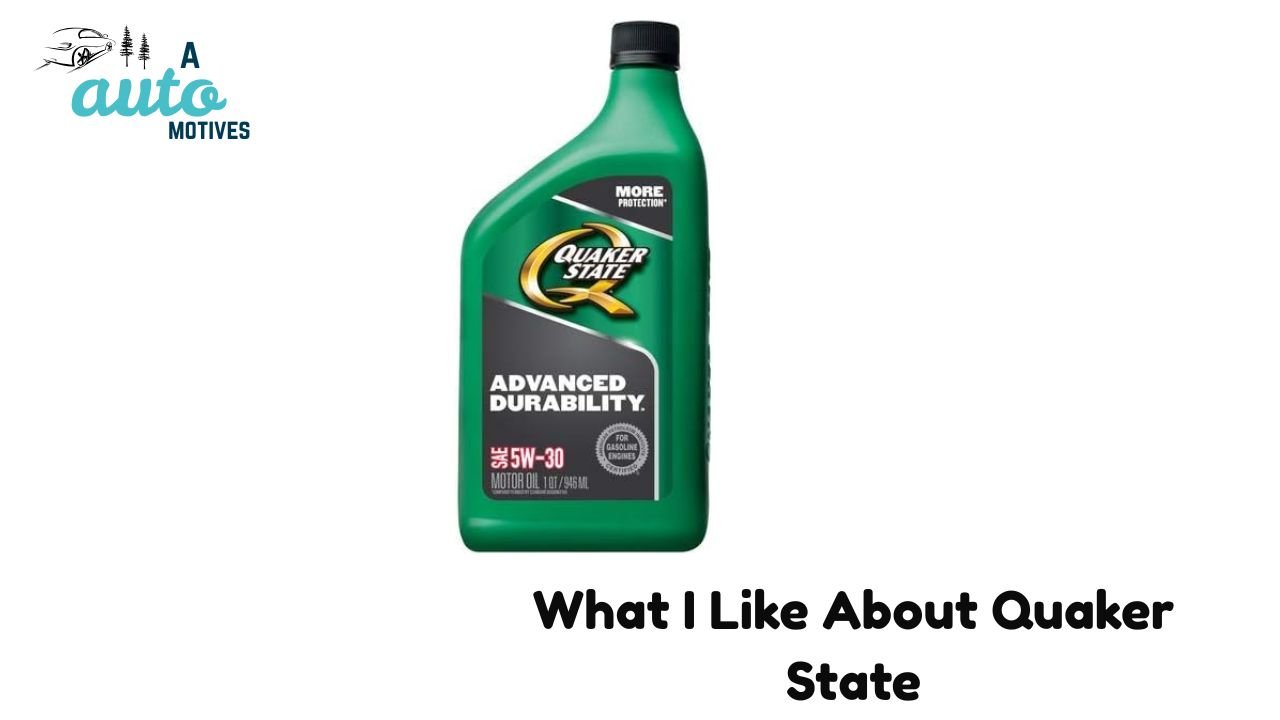
After months of testing it in real-world conditions, I found several things that genuinely impressed me.
Strong Engine Protection
This is where Quaker State shines the most. It keeps the engine running smooth and prevents wear even under stress. I’ve run it in city traffic, on highways, and in hilly terrain. In every case, the engine felt well-protected.
It also gave me peace of mind when driving older cars. If your engine already has high mileage, you want an oil that cushions it from further wear. Quaker State did that well.
Noticeable Fuel Savings
Like I mentioned earlier, the small boost in MPG might not seem huge at first. But think of it like saving a little bit of money every day—it adds up at the end of the month. The oil basically paid for itself over time by making the engine run more efficiently.
Great Cold-Weather Performance
In my experience, not all oils handle freezing mornings the same way. Some thicken up, making the engine feel like it’s cranking through syrup. Quaker State didn’t do that.
One winter morning, it was around 20°F, and I expected my older car to groan at startup. Instead, it started almost instantly. That alone made me a fan.
Dependable in Heat and Long Trips
On the other end of the spectrum, it also handled extreme summer road trips without breaking down. That balance—working in both hot and cold—is exactly what you want from an oil if you drive year-round.
Good Value for Daily Drivers
For the average commuter or family car, Quaker State hits the sweet spot: it’s affordable, reliable, and widely available. You don’t have to pay top dollar for boutique oils to get decent protection.
What Could Be Better
Of course, no oil is perfect. Quaker State has a few areas where I think it could improve.
Price Compared to Budget Options
While it’s cheaper than some premium synthetics, Quaker State isn’t the cheapest option on the shelf. If you’re on a strict budget, conventional or semi-synthetic oils might save you a few bucks. But in my view, the performance and longer intervals make up for the slightly higher cost.
Oil Change Interval Could Be Longer
Some premium brands advertise 12,000–15,000 mile intervals. Quaker State typically recommends 7,500–10,000 miles. That’s good, but not industry-leading. If you’re someone who really wants the longest possible interval, you may find this a limitation.
Availability of Specific Formulas
Most auto shops carry Quaker State, but I noticed not every store stocks the high-mileage or specialty blends. A couple of times I had to order it online because the store only had the regular synthetic. For some drivers, that could be inconvenient.
Minor Burn-Off in Older Engines
This is a small one, but worth mentioning. In one of my high-mileage cars, I noticed the oil level dipped slightly after about 4,000 miles. It wasn’t drastic—just a small top-off was needed. Other drivers have mentioned similar experiences, especially with older engines that already burn a bit of oil.
So far, I’ve covered:
-
Real-world performance (lubrication, cleanliness, MPG, heat stability, longevity)
-
The strengths of Quaker State oil
-
The areas where it could be better
Next up in the second half, I’ll go into detailed comparisons with competitors, who should (and shouldn’t) use Quaker State, and my final verdict—plus FAQs to clear up common doubts.
Comparison With Competitors
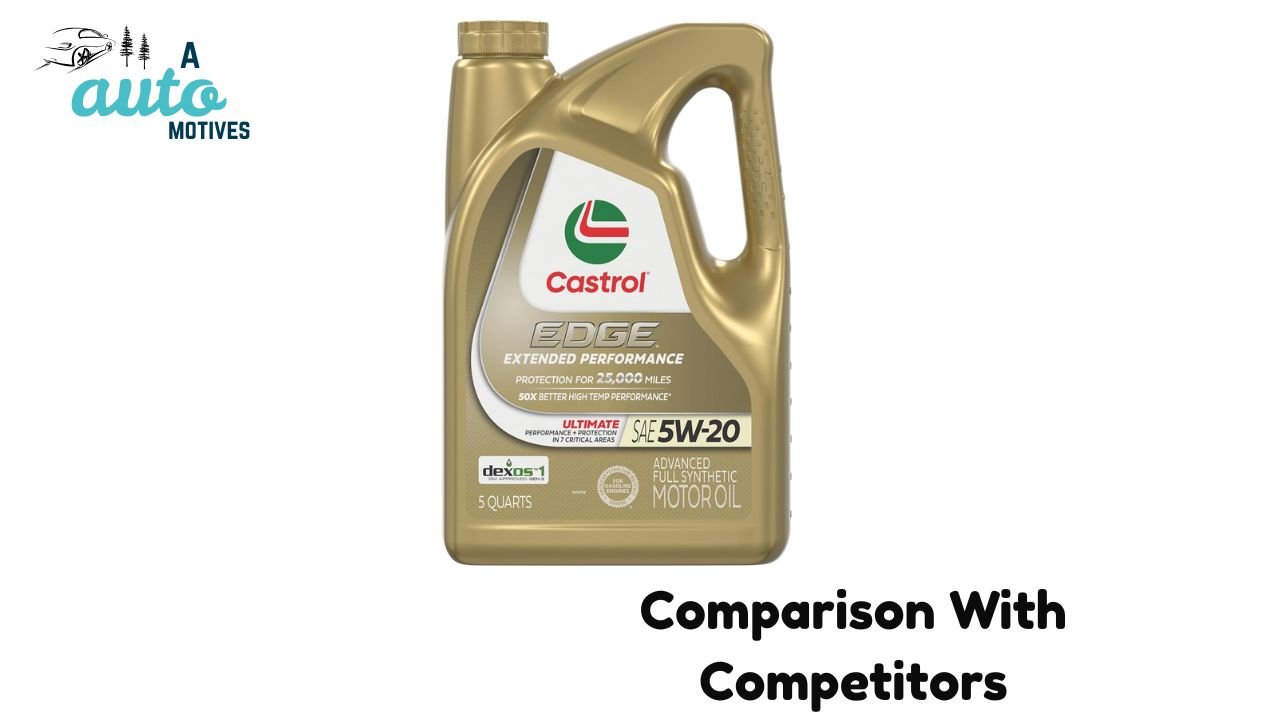
It’s one thing to say Quaker State is “good.” But in a crowded market filled with brands like Valvoline, Pennzoil, Mobil 1, and Castrol, how does it really hold up? Over the years, I’ve used most of these oils, sometimes in the same car, which gave me a chance to do an apples-to-apples comparison.
Here’s what I’ve found:
Quaker State vs. Valvoline
Valvoline often markets itself as a step above in terms of advanced additives and protection for high-performance engines. And to be fair, Valvoline does perform slightly better in extreme heat and under heavy loads. When I used Valvoline in an older SUV, I noticed the oil seemed to stay cleaner for longer.
But here’s the catch: it also costs more. For my daily commuter car, the difference wasn’t noticeable enough to justify the extra dollars. Quaker State gave me 90% of the benefits at a lower price.
Quaker State vs. Mobil 1
Mobil 1 is often considered the “gold standard” of synthetic oils. It boasts top-tier wear protection and very long oil change intervals. I’ve run Mobil 1 in a performance car, and yes—it was excellent. The oil stayed clean even after 10,000 miles.
But for my regular sedan and high-mileage commuter, Mobil 1 felt like overkill. Quaker State handled the job just fine at a lower cost. Unless you’re driving something turbocharged or pushing your car hard, Quaker State is a better value for the average driver.
Quaker State vs. Pennzoil
This comparison is interesting because Pennzoil and Quaker State are owned by the same parent company (Shell). Pennzoil tends to market itself as the “premium” line, especially with its PurePlus technology made from natural gas.
When I tried Pennzoil Platinum, I noticed smoother cold starts, but the real-world difference wasn’t dramatic compared to Quaker State. If budget isn’t a concern, Pennzoil Platinum is worth it. But if you want solid protection at a fair price, Quaker State is the smarter choice.
Quaker State vs. Castrol
Castrol is another big player, especially with its “EDGE” line designed for maximum protection. Castrol does really well in turbocharged and performance vehicles. But in my daily driving, Quaker State gave me nearly identical results.
The only major difference I noticed was that Castrol seemed to resist oil burn-off a little better in my older car. But again, it came at a higher cost.
Bottom Line on Competitors:
-
If you’re driving a performance car or need extreme-condition oil, premium brands like Mobil 1 or Castrol may be better.
-
If you’re a daily driver or have a high-mileage car, Quaker State gives you 80–90% of the benefits at a lower price.
Who Should Use This Oil?
Not every oil is right for every driver. Here’s where Quaker State makes the most sense:
-
Daily Commuters: If you drive to work and back every day, you need reliability without overspending. Quaker State nails this balance.
-
High-Mileage Cars: Its detergent package helps fight sludge, and it cushions older engines well.
-
Mixed Climates: Whether you face freezing winters or blazing summers, Quaker State synthetic handles both ends decently.
-
Budget-Conscious Drivers: You don’t need to pay premium prices for good oil. Quaker State is affordable while still offering strong performance.
Who might want to look elsewhere?
-
Performance Car Owners: If you drive turbocharged, modified, or sports cars, you may want Mobil 1, Valvoline Advanced, or Castrol EDGE for that extra edge.
-
People Who Hate Oil Changes: If you want 12,000–15,000 mile intervals, Quaker State may not stretch that far.
Final Verdict: Is Quaker State Good Oil?
So, after months of testing, do I think Quaker State is good oil? Absolutely.
It doesn’t have the flashy marketing of Mobil 1 or the “made from natural gas” tagline of Pennzoil. But what it does have is a proven formula that keeps engines clean, reduces wear, improves fuel efficiency, and lasts long enough between oil changes—all without breaking the bank.
For the majority of drivers, Quaker State is more than enough. It’s dependable, affordable, and versatile across different vehicles. Sure, it might not be the absolute best in extreme performance, but for 90% of drivers out there, it’s the smart choice.
If I had to sum it up: Quaker State is like that reliable friend who doesn’t brag, but always shows up when you need them.
FAQs About Quaker State Oil
1. Is Quaker State good for high-mileage cars?
Yes. Quaker State has a high-mileage version specifically designed for vehicles with over 75,000 miles. It helps reduce wear, prevent leaks by keeping seals flexible, and keeps engines clean.
2. How often should I change Quaker State oil?
For conventional Quaker State, every 3,000–5,000 miles is safe. For full synthetic, you can stretch to 7,500–10,000 miles depending on driving habits. Personally, I stick to around 7,500 miles.
3. Does Quaker State improve fuel efficiency?
Yes, though don’t expect miracles. In my car, I saw about a 1–1.5 MPG improvement. That might not sound huge, but it adds up over time.
4. Can I use Quaker State in extreme weather?
Definitely. It performs well in both cold starts and high-heat road trips. If you live in a place with harsh winters or scorching summers, the synthetic version is your best bet.
5. How does Quaker State compare to Valvoline?
Valvoline has more advanced additives for extreme conditions, but Quaker State is cheaper and still offers great protection. For most people, Quaker State gets the job done perfectly well.
6. Is Quaker State a budget oil brand?
Not exactly. It’s affordable, but I wouldn’t call it “budget.” It sits in the middle: more expensive than basic conventional oils, but cheaper than ultra-premium synthetics.
7. Does Quaker State cause oil burn-off?
In my experience, some high-mileage cars may see a little burn-off. Nothing dramatic—just an occasional top-off might be needed between changes.
Closing Thoughts
When I first tried Quaker State, I honestly didn’t expect much. It wasn’t the trendiest brand, and it didn’t have the hype of Mobil 1. But after using it across different cars and conditions, I can confidently say it surprised me.
It protected my engines, kept them clean, slightly boosted MPG, and held up well in both summer heat and winter cold. For the average driver—someone who wants good protection without overspending—Quaker State is one of the best choices out there.
Would I recommend it? Yes. Without hesitation.
If you’re still debating at the store, staring at the rows of bottles, here’s my advice: grab Quaker State and don’t overthink it. Your car (and your wallet) will thank you.





